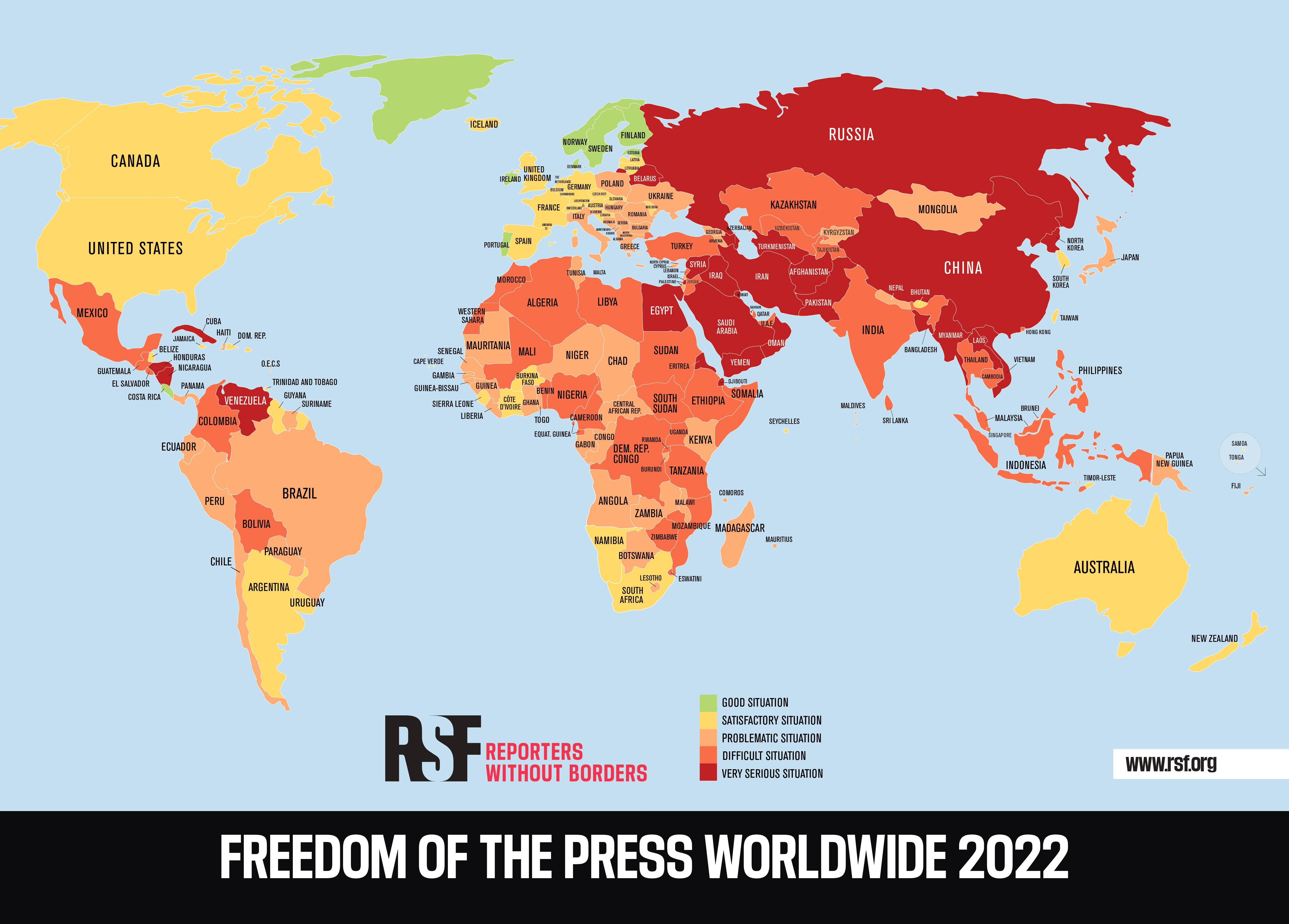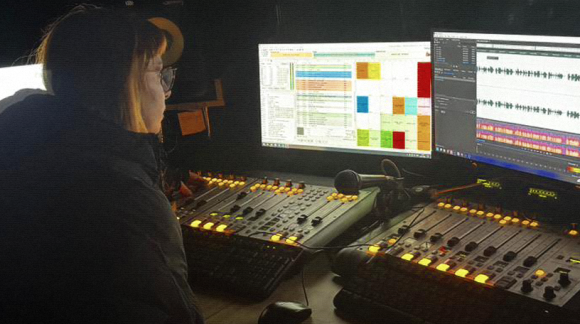Ukraine dropped nine points and now ranks 106th in the Reporters Without Borders (RSF) World Press Freedom Index.
This is stated in the RSF report “World Press Freedom Index 2022: a new era of polarization,” released on May 3.
According to the organization, the ranking, which assesses the conditions in which journalism is conducted in 180 countries and regions as of 2022, “highlights the disastrous effects of news and information chaos – the effects of a globalised and unregulated online information space that encourages fake news and propaganda.”
“At the international level, democracies are being weakened by the asymmetry between open societies and despotic regimes that control their media and online platforms while waging propaganda wars against democracies. Polarisation on these two levels is fuelling increased tension,” the report says.
According to RSF, russia’s invasion of Ukraine in late February 2022 embodies this phenomenon, as it was preceded by a propaganda war.
“In Eastern Europe, beyond the human tragedies, the war waged by Russia (155th) against Ukraine is creating devastating consequences for press freedom in the region. As many as five journalists and media workers have died as a result of gunfire during the first month of the Russian offensive, which began on 24 February 2022. The Russian military has deliberately targeted news sources in territories it occupies and has tried to coerce the local media’s cooperation,” the report said.
In russia itself, RSF note, the authorities have established total control over the information by imposing large-scale military censorship, blocking the media, persecuting rebellious journalists and forcing them to emigrate en masse. The shift began in 2021, following the reinforcement of the law on “foreign agents” and the prosecution of opposition politician Alexei Navalny, who is currently in prison.

“This control of information does not stop at Russia’s borders. The Kremlin is imposing its vision of the war on some of its neighbours, especially in Belarus (153th), where independent journalists continue to be persecuted for their work since the controversial presidential election of 9 August 2020, and where more than 20 media workers are languishing in prison. Alexander Lukashenko did not hesitate to divert a plane, on 23 May 2021, to arrest an opposition journalist who had gone into exile. A growing number of media outlets are being labeled extremist,’ and reading and sharing their content on social networks is subject to criminal prosecution,” the report said.
According to RSF, a total of 12 countries are in the red part of the list, including Belarus (ranking 153rd), russia (155th). Among the most repressive countries in terms of the press was Myanmar (176th), where the February 2021 coup d’état set press freedom back by 10 years, making it now a neighbor of North Korea (180th), Eritrea (179th), Iran (178th), Turkmenistan (177th), and China.
Among the most repressive autocratic regimes is China (175th), which has used its legislative arsenal to isolate its population and cut it off from the rest of the world. In particular, such is the example of Hong Kong (148th), which dropped significantly in the ranking. The logic of confrontation between the “blocs” is growing stronger – as between the nationalist India (150th) under Prime Minister Narendra Modi and Pakistan (157th). In the Middle East, the lack of freedom of the press continues to affect the conflict between Israel (86th), Palestine (170th), and the Arab countries.
In the meantime, the ranking’s leader is Norway (first place). According to RSF, the three leading Scandinavian countries – Norway, Denmark and Sweden – remain democratic models of freedom of speech, and this year, thanks to the change of government, Moldova (40th) and Bulgaria (91st) hope to improve the journalists’ situation, despite the fact that the media in these countries still belong to the oligarchs or are controlled by them, says RSF. The former communist states of Estonia (4th) and Lithuania (9th) were among the top ten countries in the world, while the Netherlands (28th) dropped out. Ranking last on the European continent is now Greece (108th), replacing Bulgaria (91st).
As IMI reported, in 2021, Ukraine dropped one point and ranked 97th in the World Press Freedom Index by the international human rights organization “Reporters Without Borders.”

